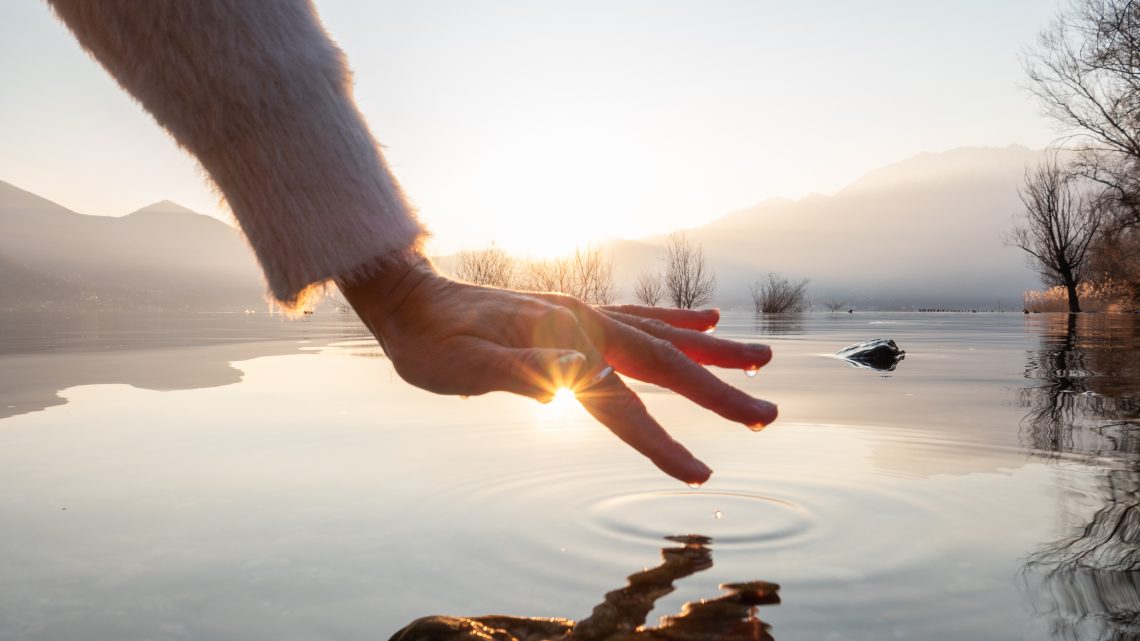As we continue our theme of Strengthening our Spirituality we take a broader look at questions that impact our church members around the globe. How are people faring in our world? We’ve been through a lot lately and unfortunately, things aren’t looking good for Planet Earth.
We know that for many their reality is war, sickness or fear–all serious concerns. In addition, according to researchers like Walter Willett, professor of epidemiology and nutrition at the Harvard T.H. Chan School of Public Health, “the climate is starting to spin out of control and is probably already reaching some irreversible changes.”
We may not be able to extend our influence in all situations, but one area where everyone can do something is by taking care of God’s creation in the spaces where we live.
Ecotherapy, sometimes called nature therapy or green therapy, stems from the concept that people are part of the web of life and provides individuals with an opportunity to explore their connection with their natural environment. There are many ways to do this, from taking occasional baby steps (like having a picnic), to making giant leaps on a daily basis (major lifestyle commitments to eco-thriving).
So how can we practically make a difference from our own little corner of Planet Earth?
An article in Mother Earth News explores how those who are aiming for lower-waste lifestyles often look beyond the common 3 R’s of Reduce, Reuse and Recycle and add two additional R’s: Refuse and Rot. The idea there is to refuse what you don’t need and compost whatever you can. Reducing food packaging by using refillable containers and cloth shopping bags makes a big difference, as does reusing or recycling items whenever possible.
ADDING NEW HABITS IS KEY
It doesn’t have to take a lot of time, money or effort to connect with nature and “live green.” Everyone can find some way to make a difference, no matter his or her level of eco-interest.
The Billion Acts of Green campaign offers many suggestions for environmental friendliness. Or you can look up Earth Day to find a list of celebrations or activities in your community. Many communities celebrate Earth Week in the spring—an entire week of activities focused on environmental issues.
As with establishing any habit, choose something that’s interesting to you, and something that can be done fairly quickly and easily. Then just do it…and keep doing it until it’s a habit.
Each season try to add something new. Whether it’s using cloth shopping bags or recycling tin cans or putting fewer chemicals on your lawn, you can know that you are helping to protect our earth and thereby bring honor to the One who created it.
Additionally, if you want to go beyond your own home, there are community nature opportunities for all ages and levels. You can get involved through an organized group like a nature club or a school activity, or check with your county or state Department of Natural Resources for ways to volunteer.
Here are five nature-friendly projects to check out:
Audubon Christmas Bird Count (audubon.org/conservation/science/christmas-bird-count)
This is the nation’s longest-running citizen bird count. It goes from Dec. 14 through Jan. 5 every year.
Frog Watch USA (aza.org/frogwatch?locale)
This project with the Association of Zoos and Aquariums allows participants to report the mating calls of local frogs and toads.
Monarch Watch (monarchwatch.org)
This activity involves tagging and tracking monarch butterflies during their annual migration in North America.
National geographic BioBlitz (national geographic.org/projects/bioblitz)
This event focuses on finding and identifying as many species as possible in a specific area over a short period of time to gauge biodiversity.
Budburst (budburst.org)
This project involves monitoring the leafing, flowering and fruiting of plants.
Seeking out such projects in your community can help you, your family, your neighbors and the planet to flourish. Based on multiple studies, there is plenty of evidence that being in nature promotes our wellbeing. According to research reported in Rodale’s Organic Life: The Innovation Issue, 2017, it even makes us more creative and compassionate.
Read Brenda’s 4-part series on green living.










